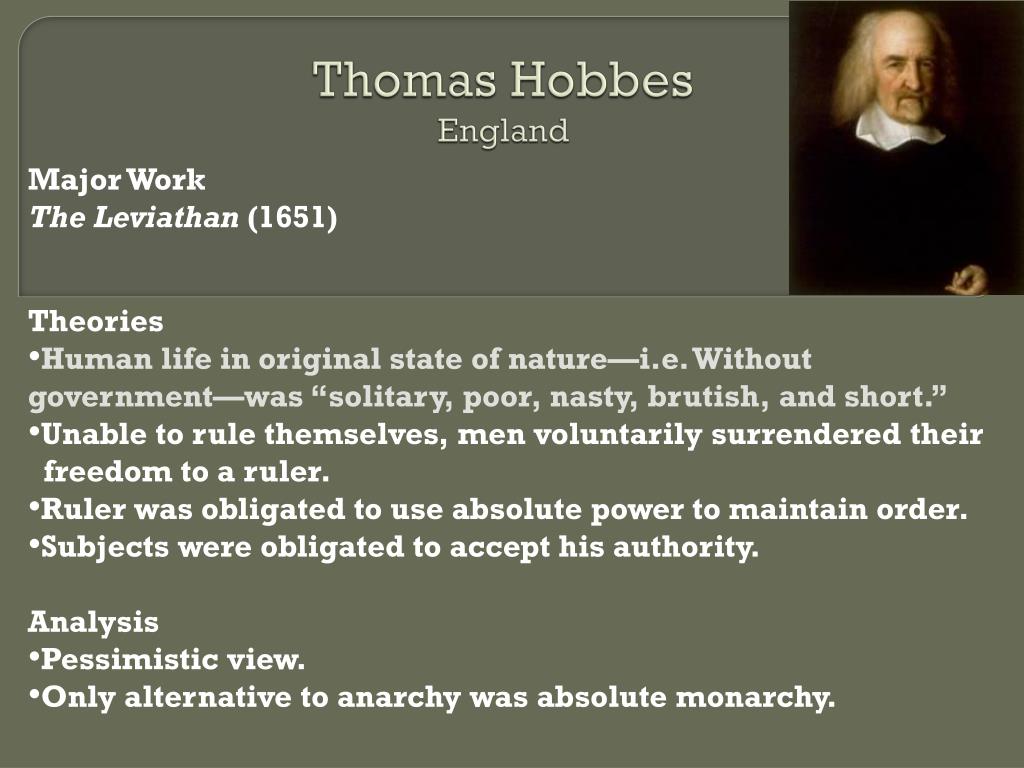
Hobbes’s sovereign can be a monarch, an aristocracy, or a democracy. It is very easy to substitute “king” or “monarch” for “sovereign” when reading Hobbes. That’s a lot! 1 Do democracies have sovereigns? And, as I will show, it makes an appearance in the account of punishment as well. Hobbes also thought it could be used to show that the sovereign cannot treat the subjects unjustly. One thing authorization does is create the corporate body of the commonwealth. Hobbes uses authorization to perform a lot of tasks. This is how the sovereign can make laws.Īuthorization involves enabling the sovereign to act as the representative for the future subjects. After the sovereign has been instituted, his commands are obligatory. In particular, the subjects give up the liberty to ignore what the sovereign tells them to do. This done, the multitude so (2) united in one person, is called a commonwealth, in Latin civitas. This is more than consent, or concord it is a real unity of them all, in one and the same person, made by covenant of every man with every man, in such manner, as if every man should say to every man, I (2) authorise and (1) give up my right of governing myself, to this man, or to this assembly of men, on this condition, that thou (1) give up thy right to him, and (2) authorize all his actions in like manner. Authorization: they authorize the future sovereign to act as their representative.

Alienation: they give up their right of governing themselves to the future sovereign.If you look at the description of the social contract at the end of chapter 17, you will see that the future subjects are described as doing two things: Why didn’t he do so explicitly? It’s a mystery. Hobbes had the resources to close this gap. That is very strange.įor what it’s worth, I think the story could well be like the one about power in chapter 10 (“Of Power, Worth, Dignity, Honour, and Worthiness”). But Hobbes does not put much effort into explaining how we get from the words in the social contract to actual force on the ground. Hobbes knows this! He says that “covenants, without the sword, are but words, and of no strength to secure a man at all” (17.2). Those are as good as the wind they are spoken on without force to back them up. A social contract is just a bunch of promises. What is weird about the social contract, though, is that it does not explain how the sovereign gets the literal power to punish. All it has to do is credibly threaten to punish anyone who starts a fight and its work is done. In other words, in diffidence, Hobbes has identified a cause of conflict in the state of nature that the state seems to be eminently capable of solving.

That is how the state stops the cycle of insecurity that causes conflict through diffidence. If he thinks that I am not worried about him, then he faces less pressure to attack me first. If I am not worried that Will will attack me, I face less pressure to attack him first. The genius of this is that it reduces the defensive motivations for fighting. How? By threatening to punish anyone who starts a fight (17.1). The state is supposed to solve this by locking us into the southeast box. That strategy is anticipation or starting the conflict on your own terms. The idea is that each side has what is called a dominant strategy, namely, one that it is rational to pursue regardless of what the other side does. Pre-emptive violence in the state of nature (Here the first number is the payoff for the row player, the second number is the payoff for the column player). To make the point, I illustrated diffidence in the state of nature with the prisoners dilemma. So the state is supposed to stop the war. Without the state, competition, diffidence, and glory cause a war of every man against every man with the consequence that life is nasty, poor, brutish, and short (see ch. 13). The social contract is supposed to solve the problem of the state of nature. Why does Hobbes have two versions of the social contract? Why isn’t one enough? How does it work? Taking Hobbes’s legalistic lingo at face value, what is supposed to be involved in the social contract?ĭoes Hobbes’s theory apply to democracies? Do democracies have a sovereign? If so, who is the sovereign in a democracy?


What is it supposed to do? What problem is it supposed to solve? We talked about four questions surrounding Hobbes’s social contract. Hobbes’s Social Contract Political Philosophy Spring 2018 Hobbes’s Social Contract Overview


 0 kommentar(er)
0 kommentar(er)
